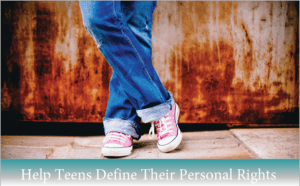
opens in a new windowDownload Flyer
Believe it or not, many teens blame themselves when they get caught up in an inappropriate relationship with an adult (or even someone their own age who is an abuser). Teach your children that it is okay to say no and that they do not have to do anything they do not want to do. Often, kids think they are supposed to respect their elders and be nice, so they go along with things that make them uncomfortable because they feel obligated. Help teens to understand:
- Their bodies are theirs.
- Past permission does not obligate them to future activity.
- They do not have to do anything they do not want to do.
- They should trust their instincts.
- It is not okay for them to engage in sexual behavior with adults.
- It is not okay for adults to take/request pictures or videos of them in sexual positions or unclothed.
- Regardless of how they dress or talk, it does not constitute permission.
- Pornography is not an accurate depiction of real life.
- They deserve to be spoken to with respect and never feel coerced.
- Alcohol and drugs may make it hard for them to maintain their boundaries and can cloud their judgment.
- Touching someone sexually while they are drunk is abuse.
- No one has the right to touch them without their permission.
For more information on keeping kids safe, visit our website at www.dakotacac.org
call (701) 323-5626.
This post was recently published in the Dakota Catholic Action.
